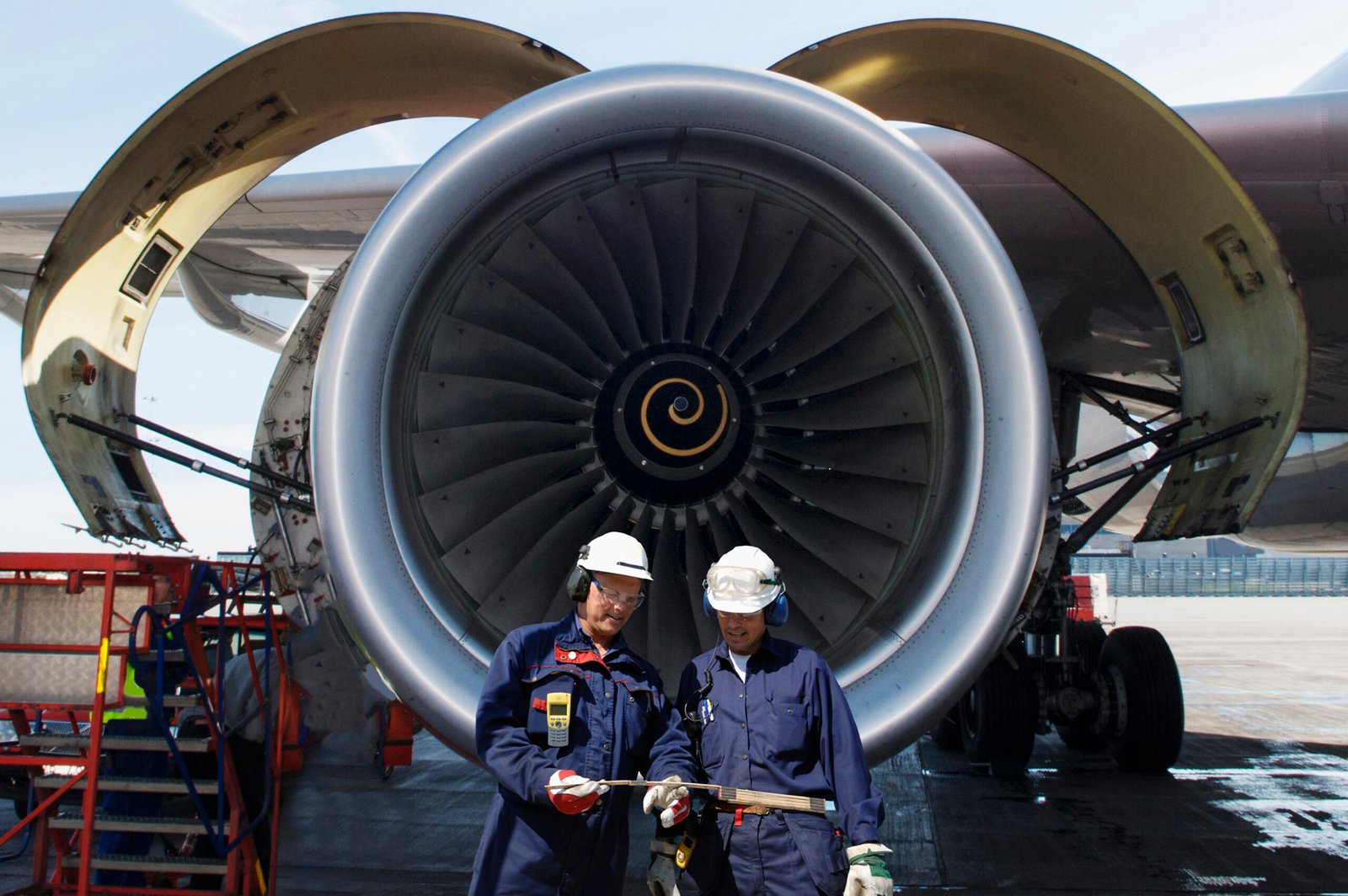Simulator Training
Navigating Turbulence: How Aviation Adapts to Global Challenges
In a world where uncertainty and change are constants, the aviation industry continues to demonstrate remarkable resilience and adaptability. From evolving technological landscapes to shifting regulatory frameworks, the sector faces numerous challenges head-on. Central to this evolution is education, which plays a pivotal role in preparing the next generation of aviation professionals.
*Aviation Schools: Types of Courses**
Education in aviation is as diverse as the field itself. Various schools offer specialized programs that cater to different interests and career paths. Here’s a breakdown of some common types of courses available:

1. **Pilot Training Programs**: These are perhaps the most well-known offerings, encompassing private pilot licenses (PPL), commercial pilot licenses (CPL), and airline transport pilot licenses (ATPL). Students learn not just how to fly, but also about navigation, meteorology, and aircraft systems.
2. **Aircraft Maintenance Engineering**: For those inclined towards technical expertise, these courses focus on maintaining and repairing aircraft systems. They cover everything from jet engines to airframe structures.
3. **Air Traffic Control Training**: Aspiring air traffic controllers undergo rigorous training that includes simulations and real-time decision-making exercises to ensure safe skies.
4. **Aviation Management Programs**: These courses prepare students for administrative roles within airports or airlines, focusing on operations management, finance, marketing, and human resources specific to aviation.
5. **Unmanned Aerial Systems (UAS)**: With the rise of drones in commercial applications—from delivery services to agricultural monitoring—these programs teach students how to operate and manage UAS effectively.
Each type of course equips individuals with unique skills tailored for various sectors within aviation.
*Aviation Blogs, Websites & Social Media Sites**
Staying informed about industry trends is crucial for aviation enthusiasts and professionals alike. Here’s a list of noteworthy blogs, websites, and social media platforms dedicated to aviation:
**Airliners.net**: An extensive online community showcasing photographs and discussions surrounding various aircraft.
**The Points Guy**: This blog covers travel tips, loyalty programs, and airline reviews—perfect for frequent flyers seeking insight.
**Flying Magazine**: A treasure trove for pilots featuring articles on flying techniques, safety tips, gear reviews, and more.
**FlightAware.com**: Offers real-time flight tracking data along with insights into airport operations.
**YouTube Channels like Mentour Pilot & Captain Joe**: These channels provide engaging video content ranging from flight tutorials to behind-the-scenes glimpses at airline operations.
Social media platforms such as Instagram or Twitter also host vibrant communities showcasing stunning aerial photography or sharing personal flying experiences under hashtags like #AvGeek or #PilotLife.
*FAA Flight Schools & Simulators**
The Federal Aviation Administration (FAA) plays an integral role in regulating flight schools across the United States. FAA-approved flight schools maintain rigorous standards ensuring quality education in piloting techniques as well as compliance with safety regulations.
Many schools now incorporate advanced simulators into their curriculum—enabling students to practice flying in highly realistic environments without the risks associated with actual flights. These simulators range from basic setups mirroring small aircraft cockpits all the way up to full-motion simulators simulating large commercial jets.
As global challenges continue to shape industries worldwide—from climate change initiatives prompting greener technologies in aviation vehicles to navigating post-pandemic recovery—the educational backbone provided by diverse aviation courses ensures that professionals are ready for whatever turbulence may lie ahead.
In conclusion, through innovative training programs and robust online resources combined with FAA oversight on flight education standards—even amidst adversity—the world of aviation remains steadfastly airborne!
Navigating the Skies: The Evolution of Commercial Aviation Over the Decades
The world of aviation has undergone a transformative journey, evolving from rudimentary flight attempts to a sophisticated industry that connects millions across the globe. As we soar through this evolution, it’s essential to understand how various educational pathways have developed to prepare future aviators. Today, aspiring pilots and aviation enthusiasts can explore a diverse array of aviation schools offering specialized courses tailored to different ambitions within the field.
Aviation schools come in various forms, catering to distinct interests and career paths. For instance, traditional flight training schools focus primarily on aircraft operation, offering courses such as Private Pilot License (PPL), Instrument Rating (IR), and Commercial Pilot License (CPL). These programs emphasize hands-on flight experience alongside theoretical knowledge. Meanwhile, technical schools provide comprehensive training on aircraft maintenance and engineering, equipping students with skills needed for roles like Airframe and Powerplant Mechanic (A&P).

In addition to these foundational programs, universities have begun integrating aviation into their broader academic offerings. Many now offer degree programs in Aviation Management or Aviation Technology that combine business acumen with practical flying skills. This interdisciplinary approach prepares students for management roles within airlines or airport operations. Moreover, online courses have emerged as a flexible option for those unable to attend traditional classes; they cover topics ranging from air traffic control procedures to advanced navigation systems.
As you embark on your journey in aviation education or simply seek knowledge about this expansive field, numerous blogs and websites can serve as invaluable resources. Websites like AOPA.org (Aircraft Owners and Pilots Association) provide extensive information on pilot training, safety tips, and industry news. Additionally, AVweb.com offers insightful articles on current events affecting the aviation community.
Social media platforms are also rich with content for aviation aficionados. Instagram is packed with stunning visuals from pilots showcasing breathtaking aerial views under hashtags like #pilotlife or #aviationlovers. Twitter serves as an excellent real-time news source where accounts such as @AirwaysNews keep followers updated on industry developments.
For those eager to take their passion further or considering becoming pilots themselves, researching FAA-approved flight schools is crucial. The Federal Aviation Administration maintains strict standards for certification that ensures quality education across its accredited institutions. Schools such as Embry-Riddle Aeronautical University and ATP Flight School are recognized leaders in pilot training programs.

Moreover, technological advancements have revolutionized how aspiring aviators train with simulators playing an essential role in modern instruction. Flight simulators create realistic flying experiences without leaving the ground—ideal for mastering complex maneuvers or navigating adverse weather conditions safely before taking to the skies.
In summary, the evolution of commercial aviation over decades has not only reshaped how we travel but also redefined how we educate future generations of aviators. With countless resources available—from diverse types of courses offered at various institutions to engaging online communities—there’s never been a better time to explore what it means to navigate the vast skies above us! Whether you’re interested in flying high or keeping planes running smoothly on the ground, there’s a path waiting just for you in this exhilarating industry.
Aviation Careers: Navigating the Skies of Opportunity
The aviation industry is a sprawling landscape of opportunities, beckoning those who dream of soaring through the skies. Whether you envision yourself as a pilot, air traffic controller, aircraft mechanic, or flight attendant, various educational pathways can set you on the right course. Understanding what aviation schools offer can help you find your niche in this dynamic field.
*Types of Aviation Courses**
Aviation schools provide a plethora of courses tailored to different career aspirations. Here are some types to consider:
1. **Pilot Training Programs**: These courses focus on imparting essential flying skills and knowledge about aircraft operations. They often include both ground school—where students learn aerodynamics, navigation, and weather—and in-flight training.
2. **Air Traffic Control (ATC) Programs**: ATC courses teach students how to manage aircraft safely and efficiently within controlled airspace. Aspiring controllers gain insight into communication protocols and radar systems through simulation exercises.
3. **Aircraft Maintenance Engineering**: This technical pathway equips students with hands-on skills required for maintaining and repairing aircraft. Courses cover everything from electrical systems to structural integrity and comply with FAA regulations.
4. **Aviation Management Degrees**: Ideal for those aiming for leadership roles in airlines or airports, these programs blend business principles with aviation-specific subjects like logistics and safety management.
5. **Flight Dispatch Training**: Flight dispatchers play a crucial role in ensuring that flights operate smoothly by planning routes and managing schedules. Specialized courses prepare students for this fast-paced environment.
6. **Specialized Certifications**: Many aviation schools also offer short-term certifications in areas such as drone piloting or safety management systems—perfect for those looking to enhance their employability without committing to long-term education.
With so many options available, potential aviators have plenty of choices tailored to their interests!
*Online Resources for Aviation Enthusiasts**
In today’s digital age, staying informed is more accessible than ever! There’s an abundance of blogs, websites, and social media platforms dedicated to aviation topics:
*Blogs*: Check out sites like *AirlineReporter*, which features news about airlines; *Flying Magazine*, offering tips from seasoned pilots; or *The Air Current*, focusing on industry analysis.
*Websites*: The FAA’s official site is invaluable for information on regulations and licensing requirements. Additionally, organizations like AOPA (Aircraft Owners and Pilots Association) provide resources tailored for pilots at all levels.
*Social Media*: Platforms like Instagram showcase stunning aerial photography under hashtags such as #aviationlovers or #flyinghigh. Twitter accounts like @AvGeekGirl share daily insights into aviation trends that can help broaden your knowledge base.
*FAA Flight Schools & Simulators**
When it comes to practical training, FAA-approved flight schools are your best bet—they meet strict guidelines ensuring quality education. Institutions such as Embry-Riddle Aeronautical University and ATP Flight School have garnered reputations as leading providers of pilot training across the United States.


For those seeking hands-on experience without immediate access to an aircraft, simulators serve as excellent alternatives! Advanced flight simulators mimic real-life scenarios allowing aspiring pilots to practice maneuvers safely before taking off into the skies themselves.
As you embark on this exciting journey through the world of aviation careers, remember that every takeoff begins with a solid foundation—education being paramount! Equip yourself with knowledge from reputable sources while honing your skills at top-notch institutions, paving your way toward a rewarding career navigating the skies of opportunity!
From Local Airports to Global Networks: The Evolution of Air Travel
The aviation industry has undergone a remarkable transformation over the past century, evolving from small, local airports serving regional flights to an expansive network connecting people and goods across the globe. This evolution is not just limited to aircraft technology but also encompasses training, resources, and information sharing within the field. As we explore the multifaceted world of aviation today, we’ll delve into various aviation schools offering specialized courses, essential online resources for enthusiasts and professionals alike, as well as FAA-approved flight schools.

### Aviation Schools by Types of Courses
Education in aviation is diverse and tailored to meet the needs of aspiring pilots and other industry professionals. Here are some common types of courses offered at various aviation schools:
1. **Pilot Training Programs**: These programs include Private Pilot License (PPL), Instrument Rating (IR), Commercial Pilot License (CPL), and Airline Transport Pilot License (ATPL). Each course builds upon the last, equipping students with necessary skills for various levels of flying.
2. **Aircraft Maintenance**: For those interested in the technical side, aircraft maintenance programs cover subjects such as airframe systems, powerplant mechanics, and avionics. Graduates often pursue certifications through the FAA.
3. **Aviation Management**: These courses focus on airport operations, airline management, and logistics. They prepare students for administrative roles within airlines or regulatory agencies.
4. **Flight Attendant Training**: Flight attendant programs prepare individuals for a career in cabin crew service with training in safety protocols, customer service skills, and emergency procedures.
5. **Air Traffic Control**: Specialized programs teach future controllers how to manage air traffic flow safely and efficiently while working under pressure.
### Lists of Aviation Blogs, Websites, Social Media Sites
In this digital age, staying informed about industry trends is easier than ever thanks to a plethora of online resources dedicated to aviation:
**Blogs**:
– *AirlineReporter*: Covers airline news from a passenger perspective.
– *Flying Magazine*: Offers insights into pilot experiences and aircraft reviews.
– *AvWeb*: Focuses on general aviation with articles on new technologies and pilot stories.
**Websites**:
– *AOPA.org*: The Aircraft Owners and Pilots Association provides invaluable resources for pilots.
– *FlightAware.com*: Real-time flight tracking information keeps you updated on global flights.
– *SkyVector.com*: An essential resource for navigation charts used by pilots worldwide.
**Social Media**:
– Twitter accounts like @AviationWeek provide breaking news updates.
– Instagram pages featuring stunning aerial photography can inspire future aviators.
– Facebook groups dedicated to specific aircraft or pilot communities foster engagement among enthusiasts.
### FAA Flight Schools/Airplane Schools/Simulators
For those serious about pursuing a career in aviation or simply wanting to take their passion further, enrolling in an FAA-approved flight school is crucial. These institutions ensure compliance with federal regulations while providing high-quality education:
**Local Flight Schools** often operate out of regional airports offering hands-on experience with trained instructors using real aircraft.
**Online Courses & Simulators** have gained popularity as they offer students flexibility alongside interactive learning experiences without leaving home. Many platforms feature advanced flight simulators that replicate real-life flying scenarios—perfecting skills before stepping into an actual cockpit.
In conclusion, the journey from local airports facilitating simple flights to a complex global network showcases how far air travel has come—and continues to evolve! With diverse educational pathways available through reputable aviation schools coupled with countless online resources at our fingertips today’s aspiring aviators are better equipped than ever before to soar high!
Soaring High: The Future of Aviation Technology
As we glide into a new era of aviation, the horizon is rich with opportunities for aspiring pilots and aviation professionals. The landscape of aviation education is evolving, offering diverse paths tailored to various interests and career aspirations. Whether you are captivated by the mechanics of flight or the intricacies of air traffic control, there’s an educational track designed just for you.
Aviation schools have diversified their curriculums to encompass a broad spectrum of courses. For those aiming to become pilots, traditional flight training programs remain a staple; however, many institutions now offer specialized tracks including commercial pilot training, instrument ratings, and multi-engine certifications. Other courses delve into the technical aspects—aircraft maintenance programs provide students with hands-on experience in maintaining and repairing aircraft systems.

For individuals drawn to the business side of aviation, management courses are essential. These programs cover everything from airport operations to airline management strategies. Additionally, flight dispatchers can find dedicated training that prepares them for critical roles in ensuring safe and efficient flights. With the rise of drone technology, schools also offer drone pilot certifications—a reflection of how rapidly this sector is expanding.
In today’s digital age, staying informed about innovations in aviation technology is crucial. A wealth of resources exists online for enthusiasts and professionals alike. Some notable blogs include “AirlineReporter,” which covers industry news with a focus on airlines’ operations and passenger experiences, as well as “The Points Guy,” which provides insights into travel rewards related to flying. Websites like “FlightAware” offer real-time tracking information on flights around the globe while forums such as “PPRuNe” (Professional Pilots Rumour Network) facilitate discussions among aviation professionals.
Social media has also emerged as a vital platform for connecting with fellow aviators and staying updated on trends. Twitter accounts like @AvGeekery celebrate all things aviation through stunning imagery and engaging content while Instagram pages such as @FlyingtheSkies showcase breathtaking aerial views that inspire wanderlust. LinkedIn groups focused on aerospace careers create networking opportunities that can be invaluable in furthering one’s career.
If you’re considering pursuing your dreams within this thrilling field, FAA-approved flight schools are your launching pad. These institutions adhere strictly to federal regulations ensuring high-quality training standards across the board. Schools like Embry-Riddle Aeronautical University not only provide robust pilot training but also boast programs in aeronautics engineering and air traffic management.
For those who may hesitate due to time constraints or budget considerations, simulators present an excellent alternative for immersive learning experiences without leaving the ground. Flight simulator platforms range from sophisticated setups used by commercial pilots to more accessible options available at local flight schools or even home versions catering to hobbyists eager for realistic flying experiences.
With advancements in technology shaping every aspect of our lives—including how we travel—the future of aviation promises exciting innovations that will redefine our skies. As electric aircraft take center stage alongside sustainable fuels, educational institutions continue adapting their offerings to prepare students for these changes.
Whether you’re embarking on your journey through an aviation school or simply seeking knowledge through online platforms and communities, remember that every moment spent learning brings you closer to soaring high above those clouds! Embrace this dynamic world where passion meets technology—your adventure awaits!




